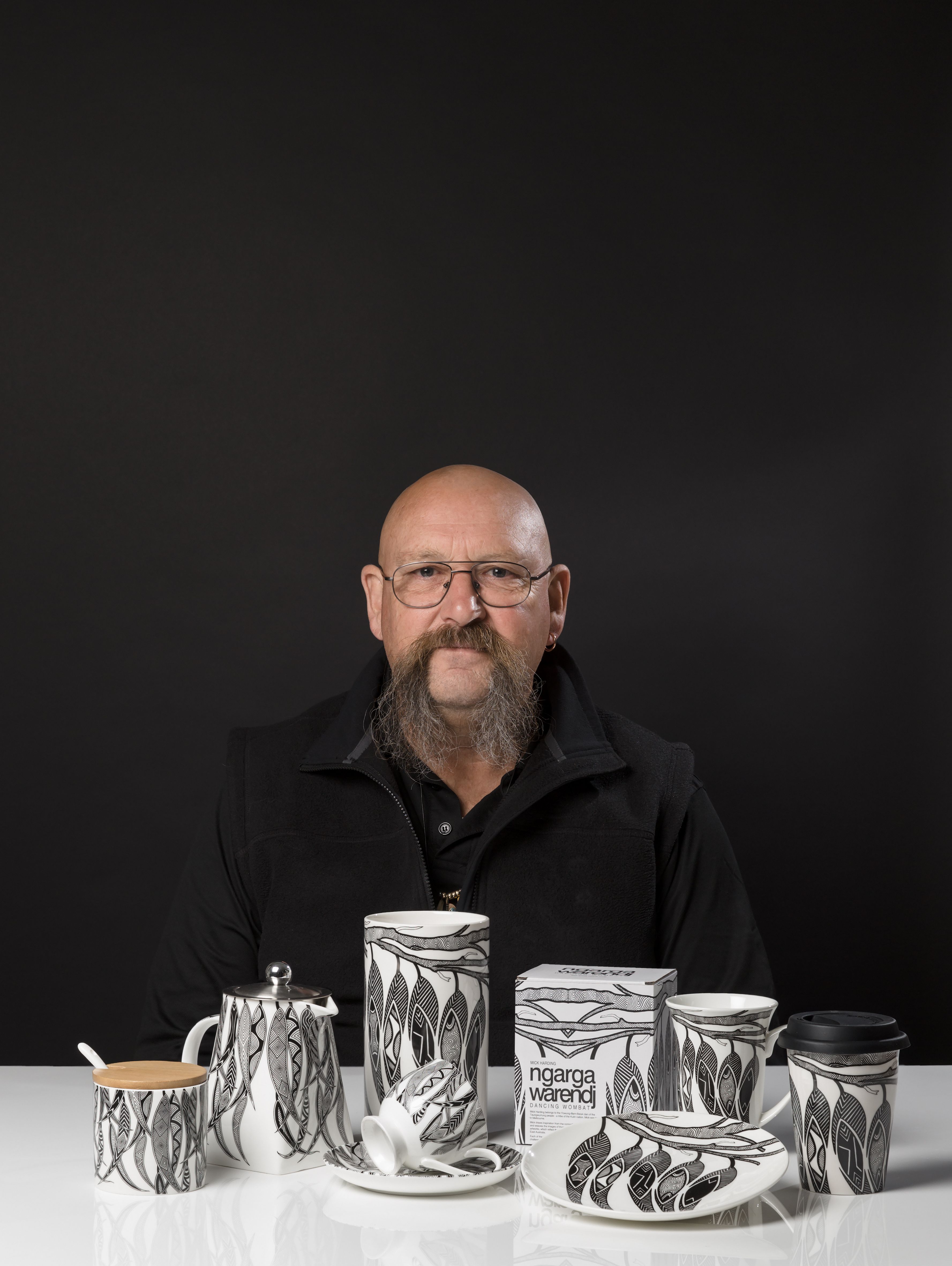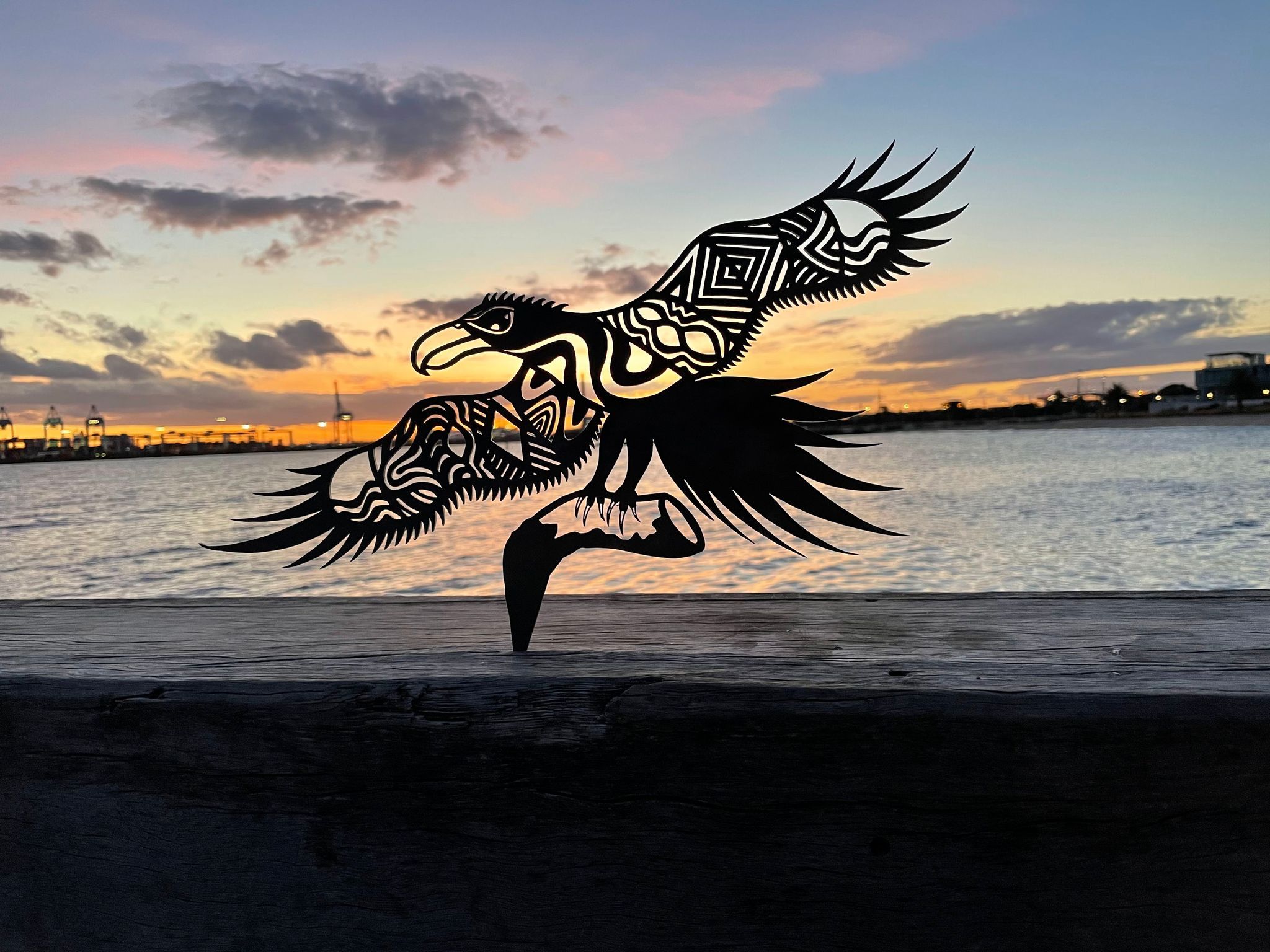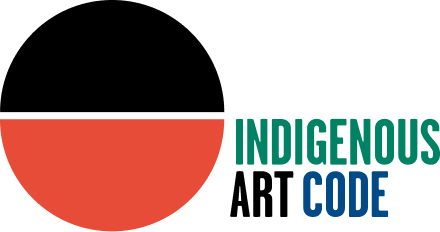Mick Harding: ‘We are closing the gap ourselves.’

His company, Ngarga Warendj Dancing Wombat, is known for its high-quality products that are produced by the artist or through ethical licensing agreements with third parties.
Harding emphasises the importance of his artmaking as a way to be both culturally and financially independent. His art is also for his children and community, and he says that buying genuine products from Indigenous artists “puts money into our pockets and into our communities. We are closing the gap ourselves.”
As an increasingly recognised artist, Harding works in collaboration with two Indigenous Art Code Code Signatories – Alperstein Designs and Animalia. These respectful and ethical relationships are built on trust developed through open communication and fair and transparent written licensing agreements. Harding enters into licensing agreements which he takes his time to review and seeks advice on. He stresses the importance of licensing rather than selling or assigning copyright:
‘I’ve never sold my copyright to anybody. The reasons why I use licences are the designs I’m using, some of them similar to the way my old people expressed their connection to our Country. If I sell that to somebody in terms of the copyright no one else can use that then. If our people were using it in the past and we are using it today, then I want to make sure it is there for our children and our children’s children into the future.’
The Ngarga Warendj Dancing Wombat x Alperstein Designs collaboration includes a ceramics range as well as other gift products such as a silk tie, journal and linen tea towels. Featuring Harding’s distinctive black and white linework depicting gum leaf, shield, wombat and wedge tail eagle designs, the products all come in a box complete with story.
In a more recent collaboration, Ngarga Warendj Dancing Wombat has partnered with Animalia to create striking metal art sculptures for display in the garden. The steel sculptures feature dramatic eagle, wombat, possum, goanna, turtle and platypus designs and are best framed against open sky, so their silhouette can come to life.
Taking great pride in pushing himself creatively, Harding acknowledges that Aboriginal and Torres Strait Islander artists deserve regulatory protection to ensure that ‘Indigenous art is made by Indigenous artists.’ Thankfully, the importance of this is being acknowledged by both consumers and code signatories who enter into ethical licencing agreements. Mick observes that “there is a touch of an artist everywhere” and it is up to us to see it, appreciate it and support it.


